2-Day Casablanca Adventure: Outdoor Fun and Shopping with Friends
Casablanca, Morocco
2 days
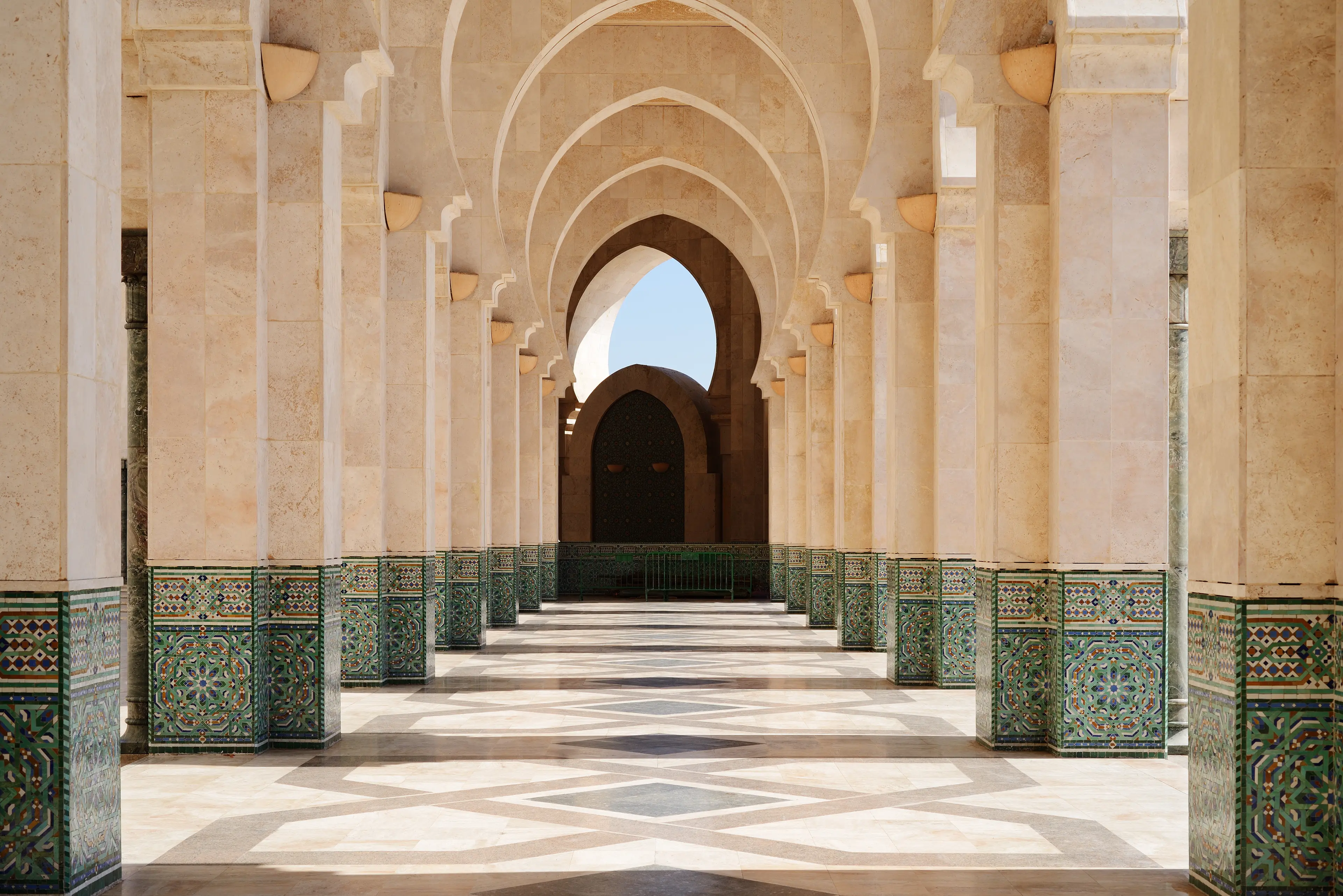
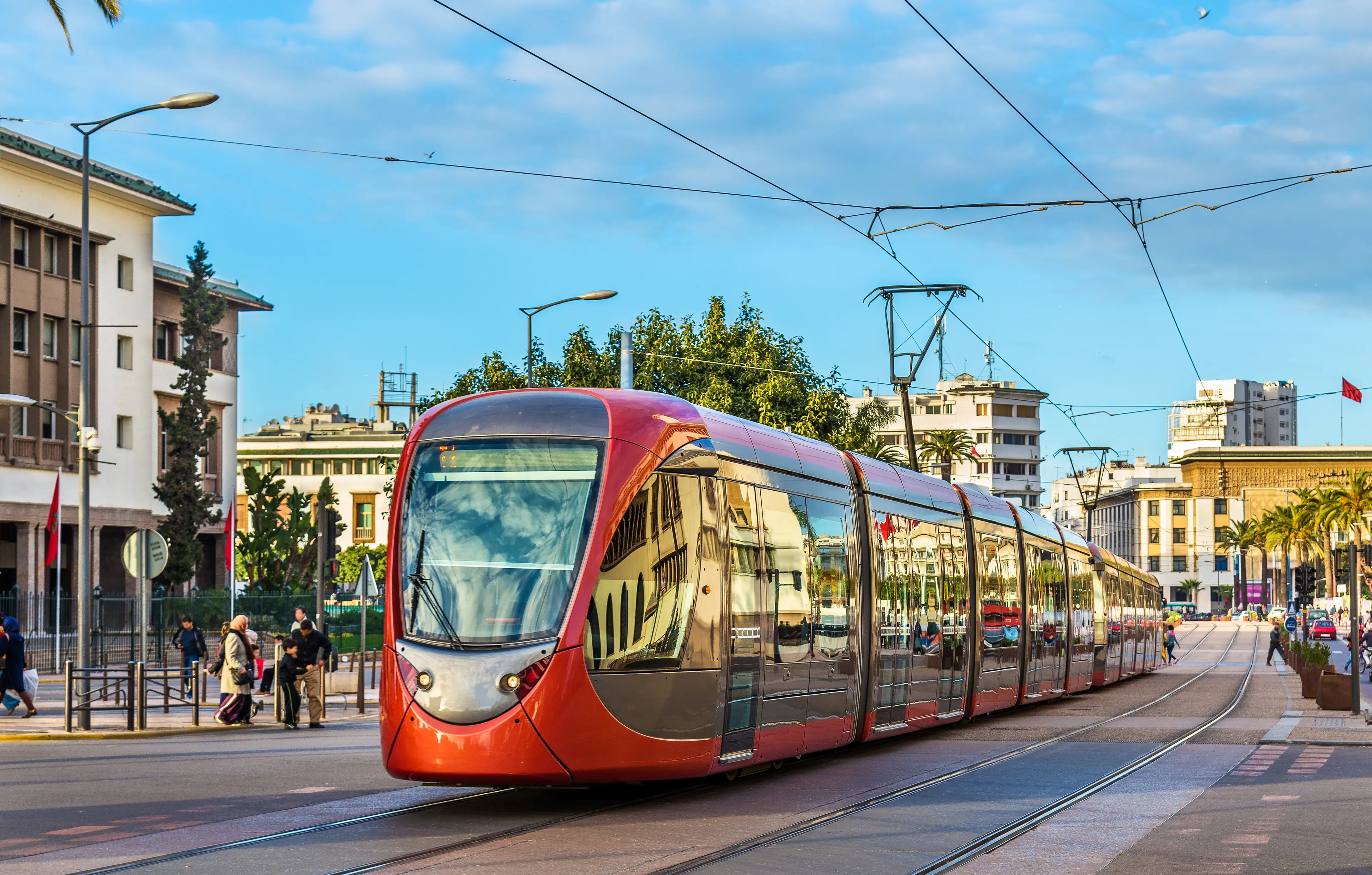
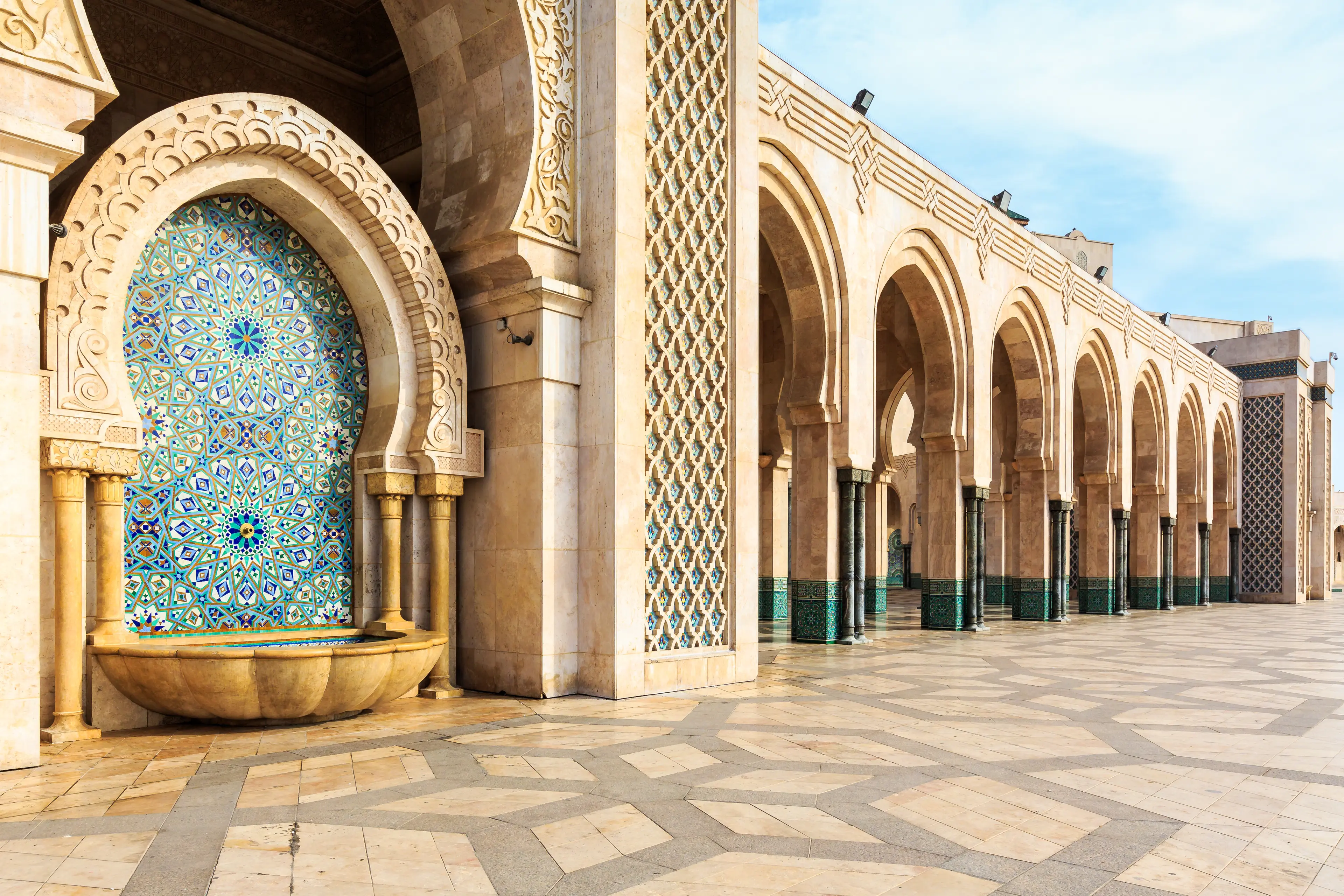
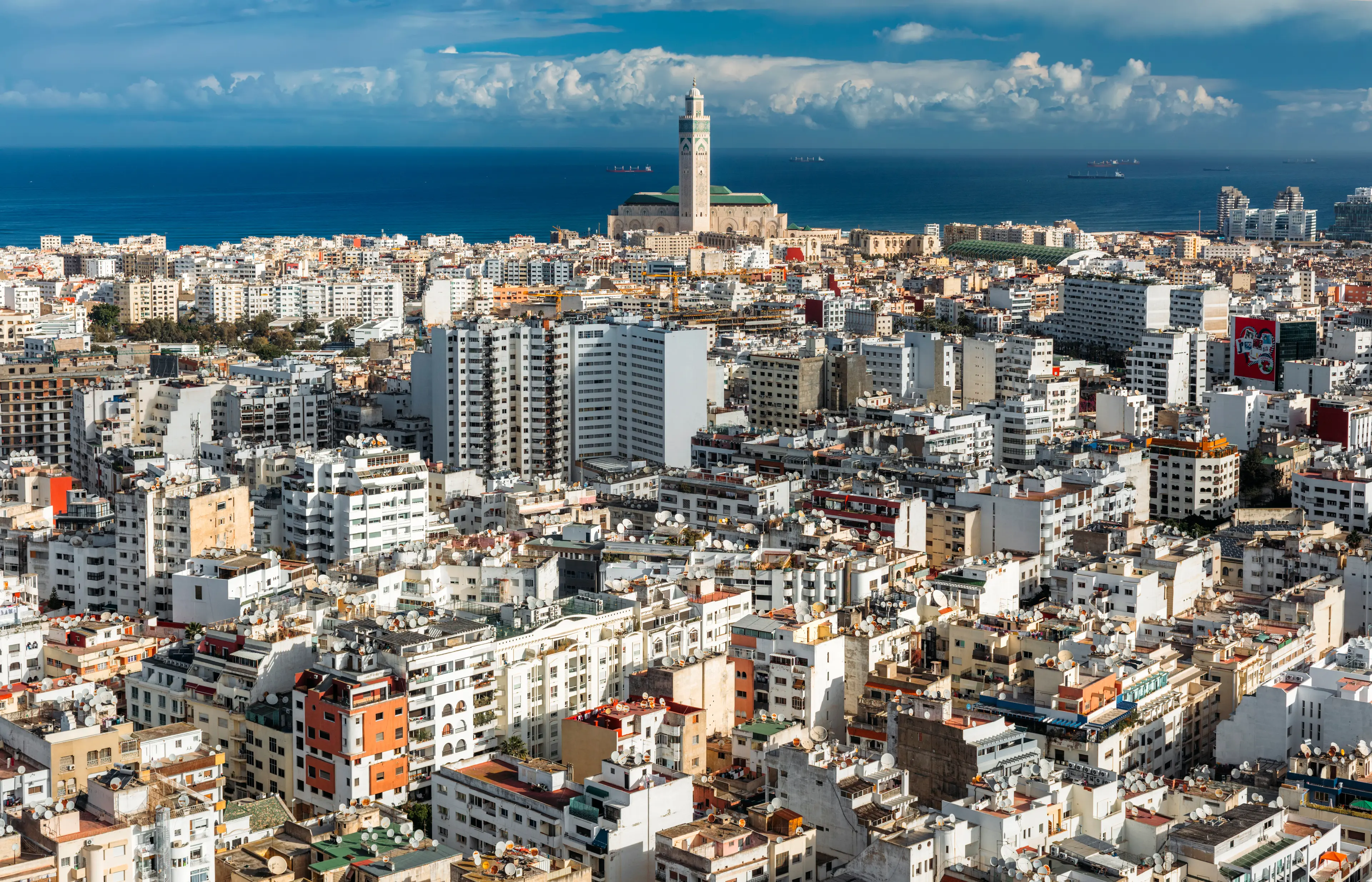
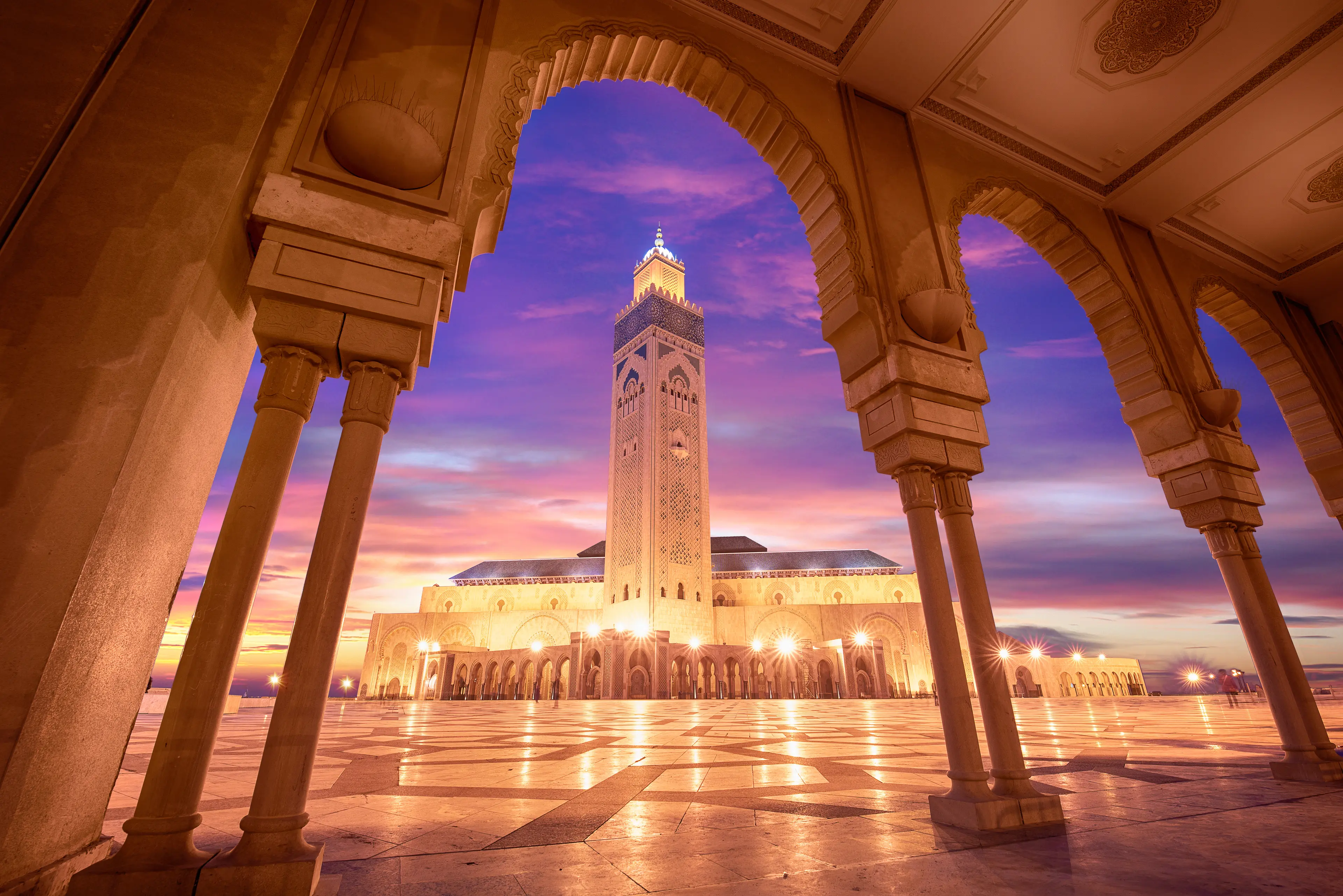
About Casablanca, Morocco
Experience the enchanting blend of modernity and tradition in Casablanca, Morocco's largest city. This bustling metropolis offers a unique mix of contemporary design and historic charm. Visit the majestic Hassan II Mosque, the world's third-largest mosque, boasting exquisite Moroccan artistry. Wander through the vibrant Central Market, a haven for food lovers, or explore the Quartier Habous, a neighborhood showcasing traditional Moroccan architecture. Don't miss the Corniche, a lively beachfront district with numerous restaurants and nightclubs. Casablanca also serves as a gateway to other Moroccan cities, making it a perfect starting point for your Moroccan adventure. Come and immerse yourself in the captivating allure of Casablanca.
2-Day Itinerary
Day 2
Shopping and Modern Attractions in Casablanca
Morning
Begin your second day with a visit to the Quartier Habous, also known as the New Medina. This area combines traditional Moroccan architecture with French influences.
Lunch
Have lunch in a local restaurant, trying out different Moroccan dishes such as pastilla or harira.
Afternoon
In the afternoon, visit the Morocco Mall, one of the largest shopping centers in Africa. Here you can find a variety of international and local brands.
Dinner
For your last dinner, try a Moroccan barbecue in a local restaurant. This is a unique culinary experience that you shouldn't miss.
Evening
Finish your trip with a visit to the Sky28, a luxurious lounge bar that offers panoramic views of the city. It's the perfect place to relax and reflect on your Moroccan adventure.
Attractions in Itinerary (6)

1Hassan II Mosque
One of the largest mosques in the world, featuring a 210m high minaret and a stunning interior of intricate mosaics.

2Old Medina
The historic heart of the city, featuring narrow winding streets, traditional markets, and historic buildings.

3Corniche
A popular ocean-front district with a boardwalk, restaurants, clubs, and hotels.

4Quartier Habous
A charming neighborhood known for its French colonial architecture, traditional Moroccan craft shops, and bustling marketplaces.

5Morocco Mall
One of the largest shopping centers in Africa, featuring a massive aquarium, an indoor amusement park, and a wide variety of international brands.

6Sky28
A luxury bar and lounge located on the 28th floor of the Kenzi Tower Hotel, offering panoramic views of the city and a selection of fine wines and cocktails.
Local Food and Drinks (11)

Couscous
A traditional Moroccan dish made from semolina and served with meat and vegetables. It's a staple in Casablanca and is often enjoyed during family gatherings and celebrations.

Tajine
Named after the earthenware pot it's cooked in, Tajine is a slow-cooked stew that can be made with a variety of ingredients, including meat, poultry, fish, and vegetables. It's a common dish in Casablanca and throughout Morocco.

Pastilla
A savory pie made with layers of thin pastry filled with meat (usually pigeon or chicken), almonds, and spices, then topped with powdered sugar and cinnamon. It's a traditional dish in Casablanca and is often served at weddings and other special occasions.

Harira
A hearty soup made with lentils, chickpeas, tomatoes, and meat, often served with a lemon wedge and dates. It's a popular dish in Casablanca, especially during the month of Ramadan.

Mint Tea
A traditional Moroccan drink made from green tea and fresh mint leaves, often sweetened with sugar. It's commonly served in Casablanca and is a symbol of Moroccan hospitality.

Zaalouk
A delicious eggplant and tomato salad, often served with fresh bread. It's a common appetizer in Casablanca and throughout Morocco.

Sardines
Sardines are a staple in Casablanca, often grilled or fried and served with a spicy chermoula sauce.

Rfissa
A traditional Moroccan dish made with shredded bread or pancakes, chicken, and lentils, served with a flavorful sauce. It's a popular dish in Casablanca, often served during celebrations.

Baghrir
A Moroccan pancake with a unique, honeycomb-like texture, often served with honey or butter. It's a common breakfast food in Casablanca.

Maakouda
A popular street food in Casablanca, these are potato cakes that are often served in a sandwich or as a side dish.

Moroccan Coffee
A strong, flavorful coffee often served with spices like cardamom, black pepper, and cinnamon. It's a popular drink in Casablanca and throughout Morocco.
Best time to visit
The best time to visit Casablanca, Morocco is during the spring (April to June) or fall (September to November). During these periods, the weather is warm and pleasant, perfect for exploring the city's historical sites and enjoying outdoor activities. The summer months can be quite hot, while the winter can be a bit chilly, especially in the evenings. Spring and fall also offer the opportunity to experience local festivals and events.
How to get around
Tramway
Casablanca's tramway system is a popular and efficient way to get around the city. It covers a large part of the city, including major tourist attractions, shopping areas, and business districts. The trams are modern, comfortable, and air-conditioned.
Taxi
Taxis are a common way to get around in Casablanca. There are two types: small, white 'petit taxis' for short trips within the city, and larger, beige 'grand taxis' for longer distances. It's important to ensure the meter is running to avoid overcharging.
Ridesharing
Ridesharing services like Uber and Careem are available in Casablanca. They can be a convenient and cost-effective way to get around, especially if you're not familiar with the city. You can book a ride using the app on your smartphone.
Bus
Casablanca's bus network is extensive, but it can be crowded and less comfortable than other options. It's a cheap way to get around, but it's recommended to have a good understanding of the routes and schedules.
Car Rental
Renting a car can give you the freedom to explore Casablanca at your own pace. However, be aware that traffic can be heavy and parking can be challenging in the city center. It's recommended for those who are comfortable with driving in foreign countries.
Train
Casablanca's train system connects the city to other major cities in Morocco. The trains are comfortable and punctual, making it a good option for inter-city travel. The main train station, Casa Voyageurs, is centrally located and easy to access.
Bicycle
Casablanca has been increasing its number of bike lanes, making cycling a viable option for getting around. Some areas of the city also offer bike rental services.
Walk
Walking can be a pleasant way to explore Casablanca, especially in the city center where attractions are close to each other. However, be aware of traffic and always use pedestrian crossings where available.
Important information
Currencyد.م. MAD
Time zoneUTC 0
Driving sideRight
Emergency phoneAmbulance: 15; Fire: 15; Police: 19
Drinking waterOpt for bottled water
Power sockets
Voltage220 V
Things to know about Casablanca, Morocco as a first time visitor
1
Casablanca is the largest city in Morocco and is not the capital; the capital is Rabat.
2
The official language is Arabic, but French is widely spoken and understood.
3
The local currency is the Moroccan Dirham (MAD). Credit cards are accepted in most places but it's good to have some cash for smaller vendors.
4
Casablanca is generally safe but like any large city, it's important to be aware of your surroundings and avoid less crowded areas at night.
5
The city has a Mediterranean climate with mild, wet winters and hot, dry summers. Temperatures range from 50°F to 80°F (10°C to 27°C).
6
Tipping is customary in Morocco. A 10% tip is generally expected in restaurants.
7
Casablanca is a Muslim city, so it's important to dress modestly, especially in religious sites and traditional neighborhoods.
8
The city is well-served by public transportation including trams, buses, and taxis. However, be aware that taxis often don't use meters, so agree on a fare before starting your journey.
9
Drinking tap water isn't recommended. It's better to buy bottled water.
10
Morocco operates on Western European Time (GMT+1).
11
The electrical standard is 220V and the socket type is E, so you may need a power plug adapter or voltage converter.
12
Casablanca is a bustling city with a mix of modern and traditional Moroccan architecture.
13
The food in Casablanca is a blend of Berber, Arabic, French, and Spanish influences. Don't miss out on trying traditional dishes like couscous, tagine, and pastilla.
14
It's customary to greet with a handshake. However, men and women usually don't shake hands unless the woman extends her hand first.
15
The city is known for its vibrant nightlife with a range of bars, clubs, and restaurants.
16
Bargaining is a common practice in markets and some shops. Don't be afraid to negotiate the price.
17
Casablanca is a busy port city, so it can be quite noisy and crowded, especially during peak hours.
18
Moroccans are generally friendly and hospitable, but it's important to respect local customs and traditions.
19
If you're a non-Muslim, you may not be allowed to enter certain religious sites.
20
Always ask for permission before taking photos of people, especially in more traditional and religious areas.
Basic Arabic to know as a first time visitor
English phrase | Native phrase | Pronunciation | When to use it |
|---|---|---|---|
Hello | Salam | sah-lam | Greeting someone |
Goodbye | Bslama | bs-la-ma | Leaving someone |
Please | Afak | a-fak | Making a request |
Thank you | Shukran | shook-ran | Expressing gratitude |
Yes | Ih | eeh | Agreeing or confirming |
No | La | la | Disagreeing or denying |
Excuse me | Smah liya | sma-lee-ya | Getting someone's attention or apologizing |
I don't understand | Ma fhemtch | ma fehmtch | When you don't understand what was said |
Do you speak English? | Wach katkalem l'anglais? | wash kat-kah-lem lang-lay | Asking if someone speaks English |
Where is the bathroom? | Fen hiya hammam? | fen he-ya ha-mam | Looking for the bathroom |
How much does this cost? | Bshhal hada? | besh-hal ha-da | Asking the price of something |
I'm lost | Rah tayeh | rah ta-yeh | When you're lost |
Can you help me? | Wach yemken lik tsaedni? | wash yem-ken leek tsa-ed-nee | Asking for help |
I'm sorry | Smeht | sme-ht | Apologizing |
Good morning | Sbah lkhir | sbaah el-kheer | Greeting someone in the morning |
Good night | Tsbah ala kheir | ts-bah a-la kheer | Saying goodnight |
Water | Maa | maa | Ordering water |
Food | Taam | taam | Talking about food |
Taxi | Taxi | taxi | Looking for transportation |
Hotel | Fondok | fon-dok | Looking for a place to stay |
Packing List
Clothing
Lightweight clothing
Comfortable walking shoes
Sunglasses
Hat for sun protection
Swimwear (if planning to visit the beach or pool)
Light jacket or sweater for cooler evenings
Scarf or shawl for visiting religious sites
Toiletries
Travel-sized shampoo and conditioner
Travel-sized body wash or soap
Toothbrush and toothpaste
Deodorant
Razor and shaving cream
Sunscreen
Hand sanitizer
Travel-sized laundry detergent
Travel documents and essentials
Passport
Driver's license or other ID
Airline tickets or e-ticket confirmation
Hotel reservation confirmation
Travel insurance documents
Credit and debit cards
Cash in local currency (Moroccan Dirham)
Guidebook or map
Electronics and gadgets
Smartphone
Charger for smartphone
Universal travel adapter
Camera
Charger for camera
Headphones
Miscellaneous items
Travel pillow
Earplugs and eye mask
Reusable water bottle
Snacks
Travel-sized first aid kit
Books or e-books for leisure reading
Travel journal and pen
Weather Conditions
Casablanca, Morocco, is known for its Mediterranean climate, which means it experiences mild, wet winters and hot, dry summers. The city is a great destination to visit year-round, but the best time to visit would be during the spring (April to June) and fall (September to November) when the weather is most pleasant. During the summer months (July to September), temperatures can soar up to 86°F (30°C), so it's advisable to pack lightweight, breathable clothing, sunblock, and a hat to protect yourself from the sun. Despite the heat, this is a great time to visit if you enjoy the beach as the Atlantic Ocean is at its warmest. Winter (December to February) in Casablanca is generally mild with temperatures ranging from 50°F to 63°F (10°C to 17°C). However, this is also the city's rainy season, so be sure to pack a raincoat or umbrella. Despite the rain, winter can be a great time to visit if you prefer cooler temperatures and fewer tourists. Regardless of when you visit, it's always a good idea to check the local weather forecast before your trip to ensure you're packing appropriately. Also, keep in mind that the weather can change quickly, especially in the spring and fall, so it's a good idea to pack layers. Finally, don't forget to stay hydrated, especially during the hot summer months. The dry climate can dehydrate you quickly, so always carry a bottle of water with you.
| Month | Hi / Lo (°C) | Weather Overview |
|---|---|---|
January | 18° / 8° | January is the coldest month in Casablanca, but it's still relatively mild with occasional rain. |
February | 18° / 9° | February is a bit warmer than January, with a slight increase in rainfall. |
March | 20° / 10° | In March, the temperature starts to rise, and the rainfall decreases, making it a good time to visit. |
April | 22° / 12° | April sees a further increase in temperature and a decrease in rainfall, making it an ideal time for outdoor activities. |
May | 24° / 15° | May is a pleasant month with warm temperatures and low rainfall, perfect for exploring the city. |
June | 27° / 18° | June marks the beginning of summer with hot temperatures and virtually no rainfall. |
July | 30° / 20° | July is the hottest month in Casablanca, with high temperatures and no rainfall, ideal for beach activities. |
August | 30° / 20° | August is equally hot as July, with high temperatures and no rainfall, perfect for sunbathing and water sports. |
September | 28° / 18° | September sees a slight decrease in temperature but it's still quite warm, with minimal rainfall. |
October | 25° / 15° | October is a comfortable month with moderate temperatures and a slight increase in rainfall. |
November | 22° / 12° | November sees a further drop in temperature and an increase in rainfall, but it's still a good time to visit. |
December | 19° / 9° | December is a cool month with moderate rainfall, making it a good time for indoor activities. |
Did you know?
Places near by Casablanca, Morocco

Rabat
The capital city of Morocco, known for landmarks like the Kasbah of the Udayas and Hassan Tower.

Marrakech
Famous for its beautiful palaces, gardens, and the Jemaa el-Fnaa square.

El Jadida
A port city on the Atlantic coast, known for its Portuguese Fortified City of Mazagan.

Fes
One of Morocco's imperial cities, known for its well-preserved old city, the medina of Fes.

Meknes
Another of Morocco's imperial cities, known for its historic monuments and sites like the Bab Mansour gate.

Chefchaouen
A city in the Rif Mountains, known for its blue-painted streets and buildings.

Essaouira
A coastal city known for its well-preserved 18th-century seaport fortifications.

Merzouga
A small village in the Sahara Desert, known for its proximity to the large Erg Chebbi sand dunes.

Tangier
A city on the Maghreb coast at the western entrance to the Strait of Gibraltar.

Agadir
A major city on Morocco's southern Atlantic coast, known for its beaches and seaside promenade.